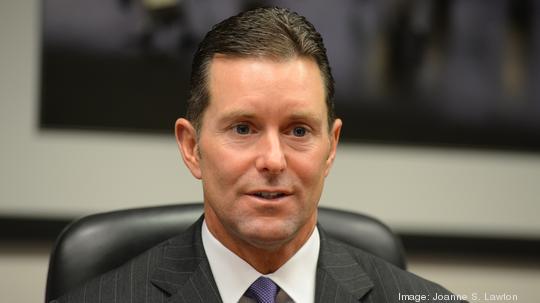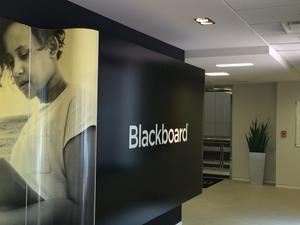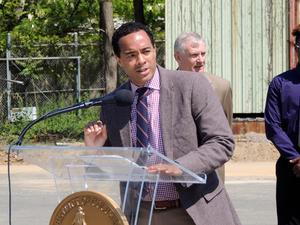
Reston's Blackboard Inc. and Florida-based Anthology, two companies that provide higher education software, are combining to form a larger player in an increasingly heated online education market.
The education technology companies announced the deal Monday, but there’s still a long list of unknowns about its terms: the cost of the merger, the name of the new combined company and where it will be headquartered — Anthology is based in Boca Raton. Blackboard spokesman Phil Johnson said many of those details are still being decided, though he declined to disclose financial terms or the value of the new entity's ownership stakes.
The marriage is expected to close by the end of this year, pending regulatory approval, according to a joint statement by the two companies. Private equity firm Veritas Capital, one of Anthology's majority owners, will own the majority of the combined company, and Leeds Equity Partners, Anthology's other majority owner, will hold a minority stake. Blackboard’s current majority owner, Providence Equity Partners LLC, will hold a minority stake in the combined company. Providence had purchased Blackboard in 2011 for $1.64 billion.
Jim Milton, Anthology’s CEO and chairman, will helm the combined company, retaining his current titles. Bill Ballhaus, Blackboard's CEO, chairman and president, will be one of its investors, Johnson said.
Anthology works with 2,000 college and university clients in more than 30 countries, though it offers software platforms for student enrollment, student activities, alumni fundraising, course registration, financial aid and other operations. Blackboard focuses more on providing learning management systems for higher education, K-12, business and government clients, saying it totals 150 million users in more than 80 countries.
But Blackboard has been seeing its market penetration slowly shrink over the years, per analysts, losing the top industry spot in 2018, when it captured roughly 28% of market share and was surpassed for the first time by Canvas, at 29%. Three years later, that gap had widened to 34% of the North American market share for Canvas and Blackboard tying with another rival, Moodle, at 21% each, according to industry analyst Phil Hill's mid-year analysis this past July. Since 2019, Hill found, Blackboard lost the most clients among its peers, mostly to Canvas, which sells the Instracture learning platform from its Salt Lake City headquarters.
The company was sold to Providence at a 21% premium — and combined with Edline, another Providence portfolio company — by its co-founder and then-CEO, Michael Chasen, who was then succeeded by two more CEOs, including ultimately Ballhaus. The company endured rounds of layoffs, a restructuring and stagnating revenue even as it made more acquisitions to keep growing. Blackboard, in 2018, ended a longtime partnership with Moodle, an open-source ed-tech provider, barring it from using that brand name. It since sold off more pieces of its business, including Blackboard Transact in 2019 to New York firm Reverence Capital Partners for an undisclosed price and its Moodlerooms business, later named Open LMS, for $31.7 million to London-based Learning Technologies Group PLC just days before the pandemic dawned in March 2020.
Blackboard, which was founded in D.C. in 1997 until it shifted its headquarters to Reston in 2019, played a major role in helping school systems shift to online learning amid the Covid-19 pandemic — occasionally with rocky results, as seen in Fairfax County in 2020 locally. The county has since switched its online education provider to New York-based Schoology, owned by PowerSchool Group LLC of Folsom, California.
In December, the Washington Business Journal reported that Blackboard had retained Savills to attempt to sublease roughly half of its 45,644 square feet at 11720 Plaza America Drive. A Blackboard spokesman confirmed at the time the company was looking for a sublease, a move that resulted from an assessment of its space needs in response to Covid-19.




